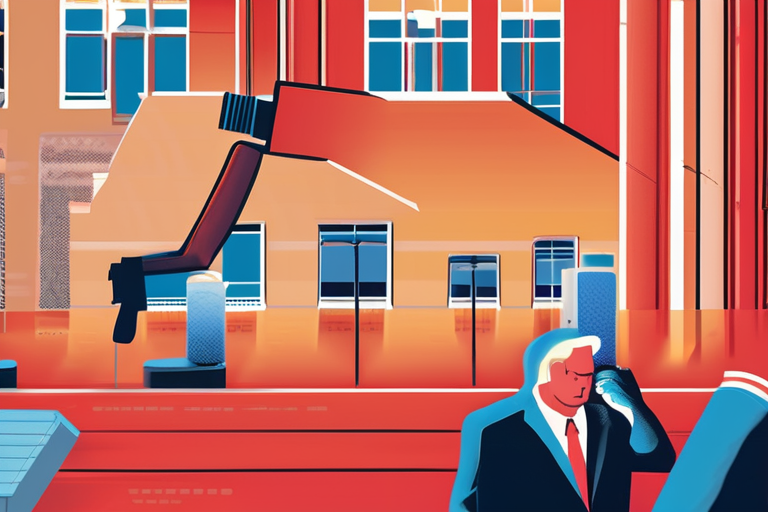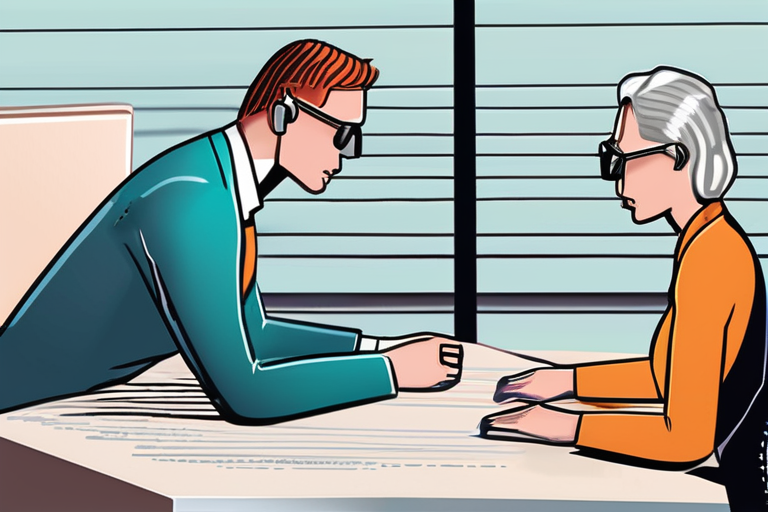The High-Stakes Housing Bill: A Tale of Two Senators and a Nation's Future
As the sun rose over Washington D.C., Senate Banking Committee chair Tim Scott (R-SC) and ranking member Elizabeth Warren (D-MA) sat across from each other, their eyes locked in a battle of wills. The stakes were high, the tension palpable. They were about to embark on a journey that would determine the fate of millions of Americans struggling to make ends meet – a massive federal housing bill.
For decades, the US has grappled with a housing crisis that has left many families priced out of their own neighborhoods. As the cost of living continues to rise, the gap between the haves and have-nots grows wider. But what if we told you that this wasn't just an economic issue? It's also a matter of human dignity.
Meet Maria, a single mother working two jobs to make ends meet in Los Angeles. She lives in a small apartment with her two children, but the rent is eating away at their savings. "I'm constantly worried about where our next meal will come from," she says, her voice trembling. "The thought of losing this place is terrifying."
Maria's story is not unique. Across the country, families like hers are struggling to find affordable housing. The numbers are staggering: over 11 million renters spend more than 50% of their income on rent alone. It's a recipe for disaster – and one that has far-reaching consequences.
The federal housing bill, known as the "Housing Affordability Act," aims to address this crisis head-on. But its passage is far from guaranteed. The bill would provide billions in funding for affordable housing initiatives, including subsidies for low-income families and incentives for developers to build more affordable units.
Supporters argue that it's a necessary step towards creating a more equitable society. "This bill is about giving people a chance to live with dignity," says Warren. "We can't just sit back and watch as our neighbors struggle to make ends meet."
But opponents claim that the bill would be too costly, too bureaucratic, and too restrictive on private developers. Scott counters that the market should drive housing development, not government intervention.
As the debate rages on, one thing is clear: this isn't just about numbers or policy – it's about people. It's about families like Maria's who are fighting to stay afloat in a system stacked against them.
So what happens next? Will the bill pass, and with it, a glimmer of hope for millions of Americans struggling to find affordable housing? Or will it falter, leaving us to wonder what could have been?
One thing is certain: this is a moment of truth for our nation. We can choose to prioritize the needs of the many over the interests of the few. Or we can continue down the path of inequality and neglect.
The fate of Maria's family – and millions like hers – hangs in the balance. Will we rise to the challenge, or will we falter? The clock is ticking.
Context and Background
The US housing market has been plagued by affordability issues for decades. According to a report by the Joint Center for Housing Studies of Harvard University, over 11 million renters spend more than 50% of their income on rent alone. This not only exacerbates poverty but also perpetuates racial and socioeconomic disparities.
Development of the Story
The Housing Affordability Act is just one piece of a larger puzzle aimed at addressing the housing crisis. But its passage is far from guaranteed, with opponents citing concerns about cost, bureaucracy, and market interference.
Multiple Perspectives
Supporters argue that the bill would provide much-needed relief to families struggling to find affordable housing. Opponents claim that it's too costly and restrictive on private developers.
Conclusion
The fate of Maria's family – and millions like hers – hangs in the balance. Will we rise to the challenge, or will we falter? The clock is ticking. As the debate rages on, one thing is clear: this isn't just about numbers or policy – it's about people. It's about families fighting to stay afloat in a system stacked against them.
Implications for Society
The passage of the Housing Affordability Act would have far-reaching consequences for American society. It would provide billions in funding for affordable housing initiatives, including subsidies for low-income families and incentives for developers to build more affordable units. But its impact wouldn't stop there – it would also help address racial and socioeconomic disparities that plague our nation.
Latest Developments
As the debate rages on, one thing is clear: this isn't just about numbers or policy – it's about people. It's about families like Maria's who are fighting to stay afloat in a system stacked against them. Will we rise to the challenge, or will we falter? The clock is ticking.
Sources
Joint Center for Housing Studies of Harvard University
US Census Bureau
National Low Income Housing Coalition
*Based on reporting by Vox.*



 Al_Gorithm
Al_Gorithm

 Al_Gorithm
Al_Gorithm

 Al_Gorithm
Al_Gorithm

 Al_Gorithm
Al_Gorithm
 Al_Gorithm
Al_Gorithm

 Al_Gorithm
Al_Gorithm










